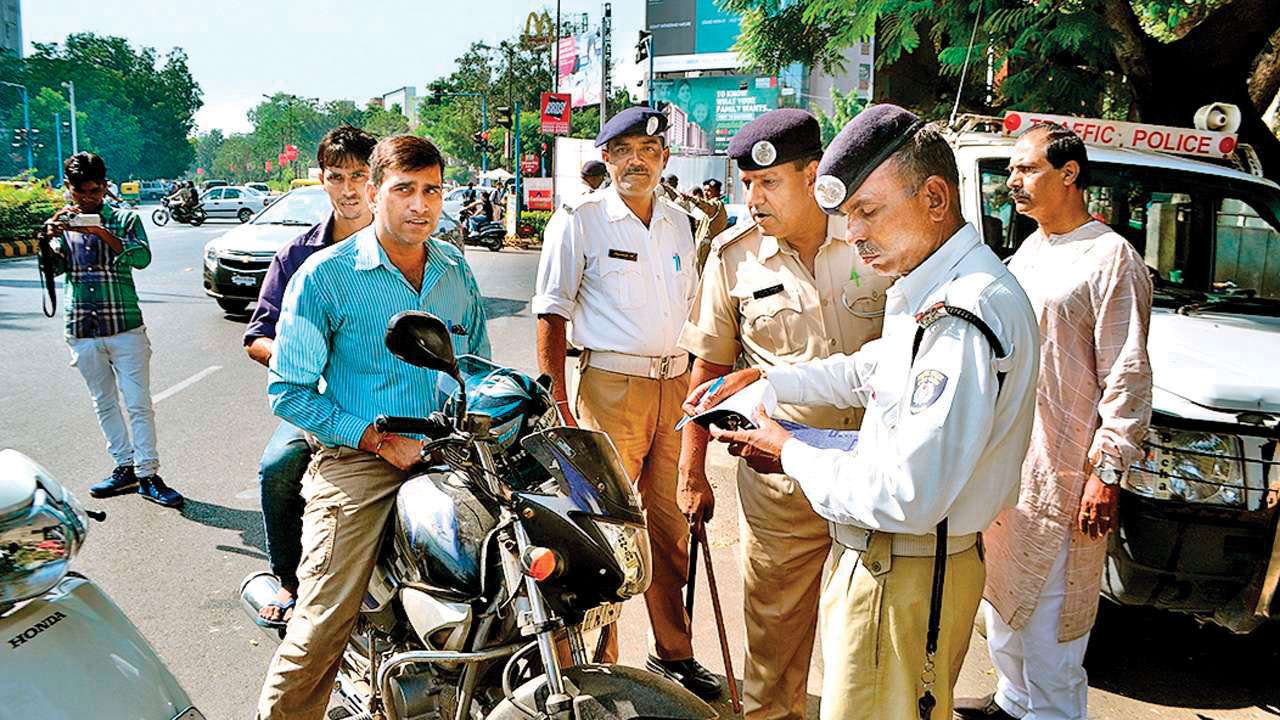
If there is one legislation that has been welcomed by all civilised denizens of this country, it is the Motors Vehicle Act, which kicked in on September 1. With the world’s highest number of road accident fatalities at 1.46 lakh annually, this is a law that India can do with. Roads in the country — particularly in metros like capital New Delhi — have become a nightmare.
Traffic violations are far too many to list; jumping traffic lights is rampant, wrong side driving leading to fatal accidents has gone up on swanky new expressways and it is too much to expect two-wheeler drivers to don helmets. The results have been positive.
On the first day, Delhi Police issued 3,900 challans, while Noida’s score stood at 1,329. The social media has been buzzing with countrywide reactions to the new Act, which introduces radical changes in policy. It makes Aadhaar mandatory for getting a driving licence and vehicle registration and in traffic violations by juveniles, the guardians or owners will be held responsible, unless they can prove that the offence was committed without their knowledge or they had tried to prevent it. For deaths in hit-and-run cases, the government will provide a compensation of Rs 2 lakh or more to the victim’s family. Currently, the amount stands at Rs 25,000. The Act is wide-ranging in every sense.
It provides for protection to Good Samaritans. Those who come forward to help accident victims will be protected from civil or criminal liability. It will be optional for them to disclose their identity to the police or medical personnel. In a matter of less than a week, traffic is looking much less chaotic and far more disciplined. One of the principal reasons for this change is that the new law imposes huge increases in penalties for petty traffic offences.
The minimum fine for drunk driving has been increased from Rs 2,000 to Rs 10,000, the penalty for rash driving has gone up from Rs 1,000 to Rs 5,000, driving without a licence will attract a minimum fine of Rs 5,000 as against Rs 500 at present, penalty for over-speeding shoots up from Rs 400 to Rs 1,000-2,000. Not wearing a seatbelt would attract a fine of Rs 1,000 as against Rs 100 at present, while talking on a mobile phone while driving goes up to Rs 5,000 from Rs 500 - a quantum leap.
The Act makes it mandatory to provide compulsory insurance and contractors, consultants and civic agencies will be held accountable for faulty design, construction or poor maintenance. In a survey conducted last year by Consumer Voice, an organisation involved in policymaking and complaints redressal, 96% of the consumers surveyed believed that passage of the Bill would help meet the UN mandate to reduce road accidents up to 50% by 2020.
An overwhelming majority — 97% — felt the Bill should be supported by all the parties. Political parties have supported the bill for it to become an Act and it is now up to the executive to implement its provisions thoroughly.